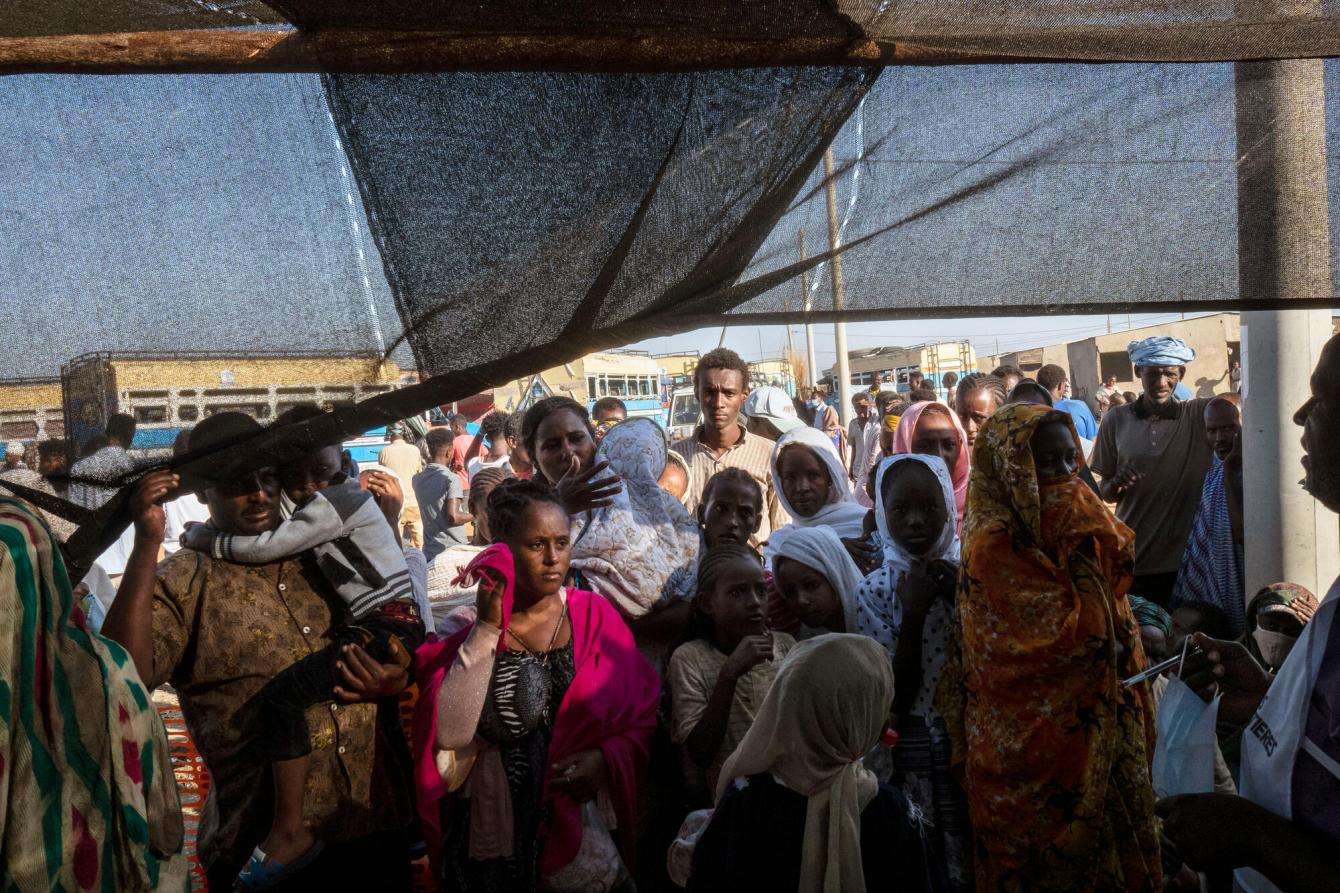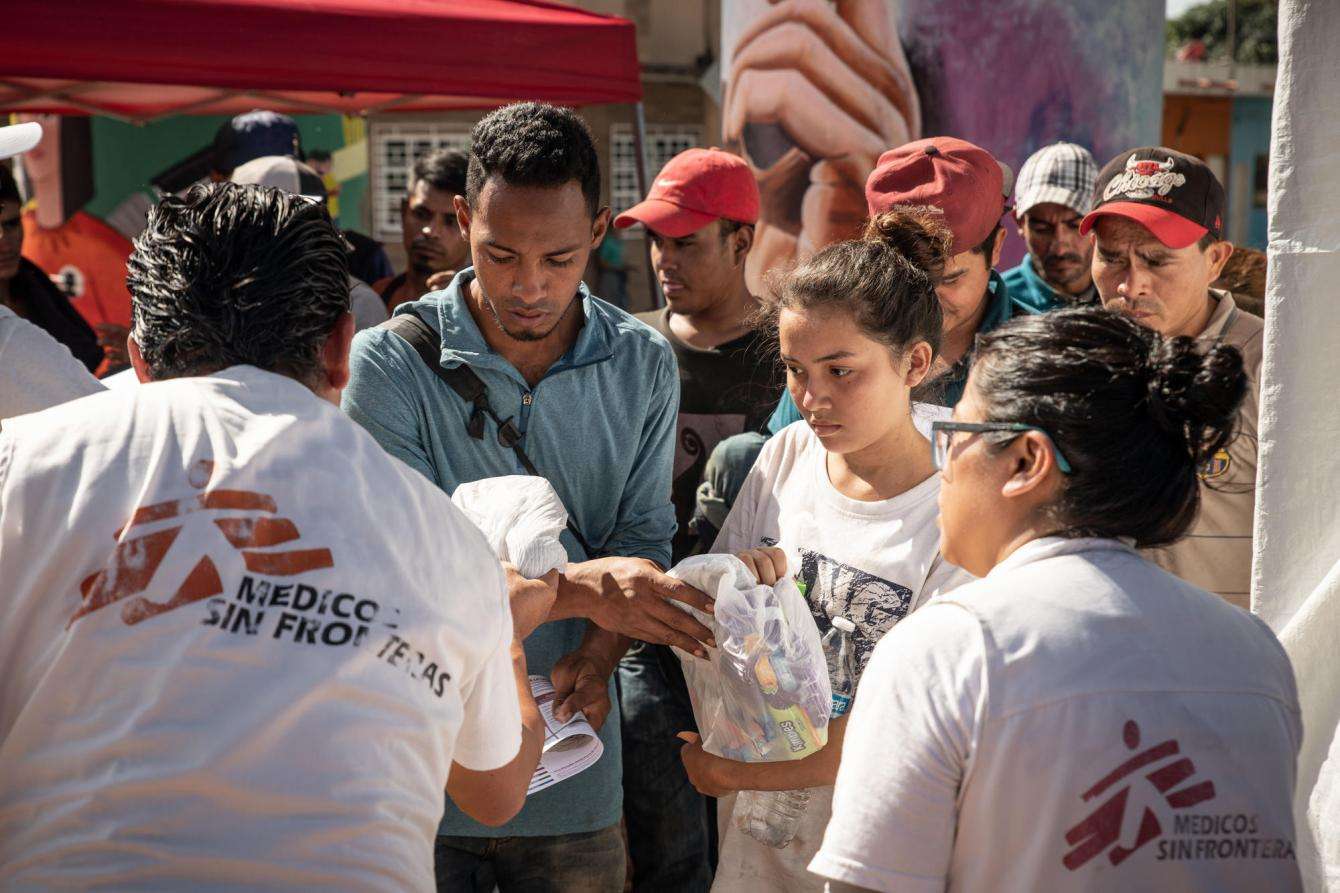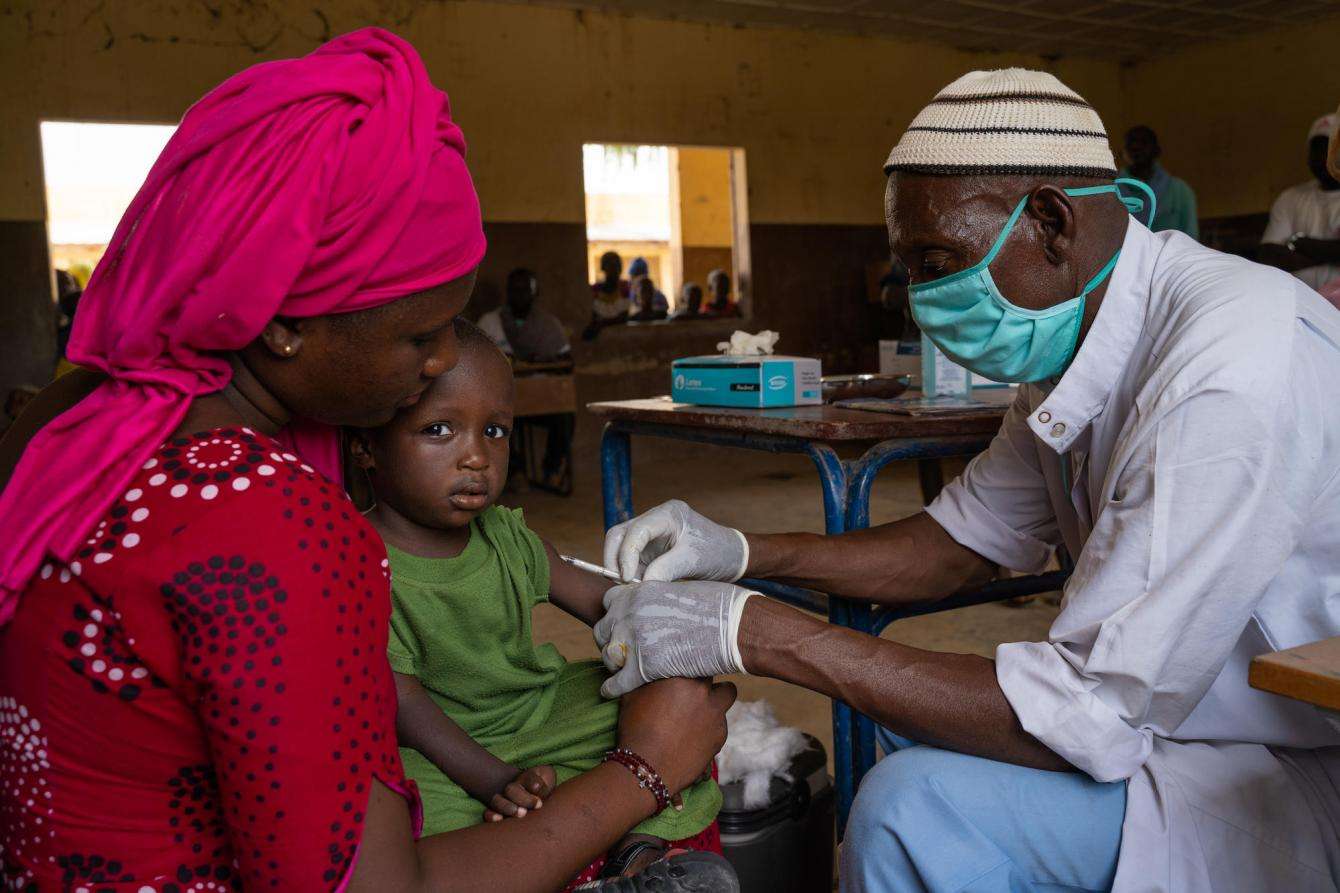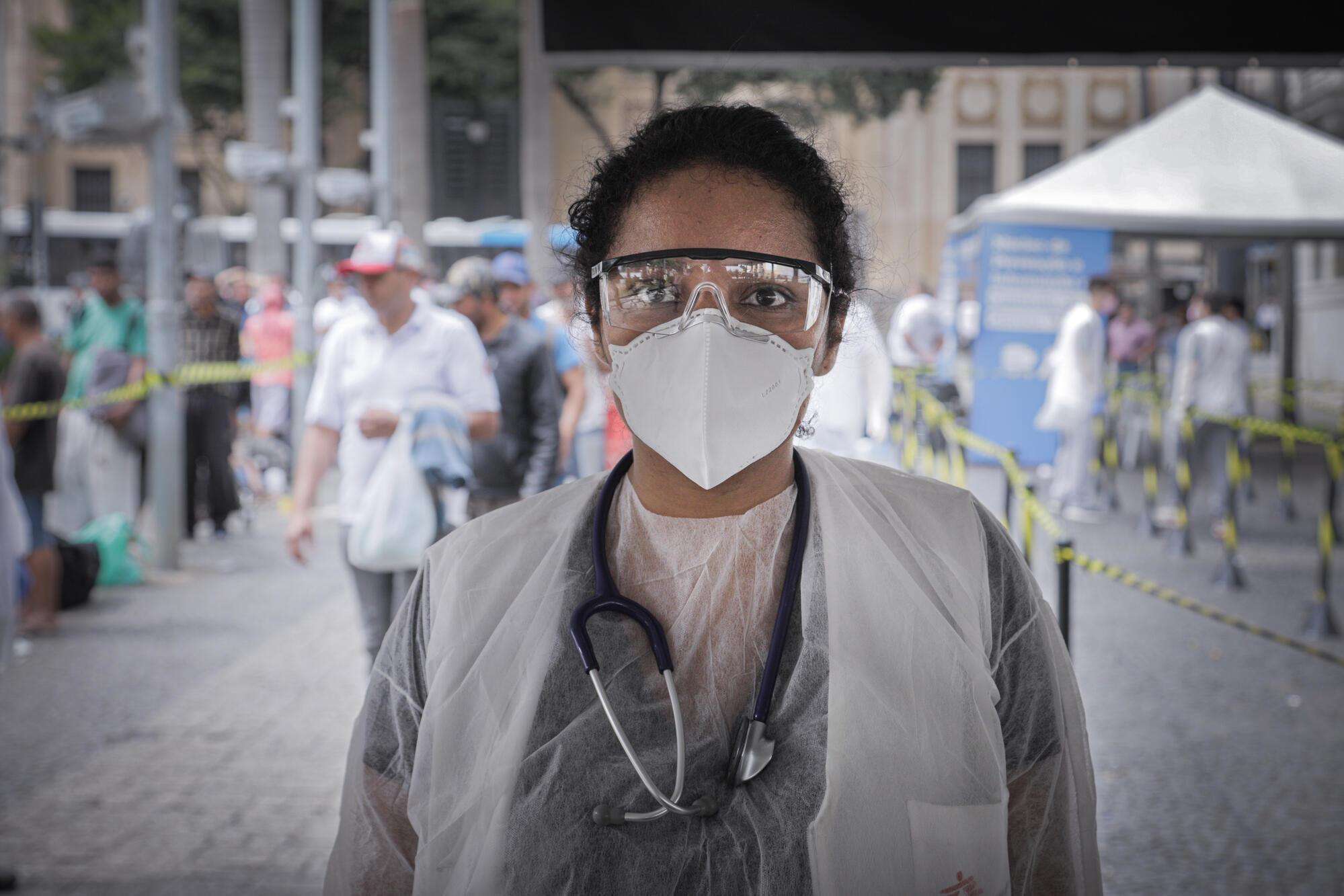Visit the MSF-USA 2020 Annual Report landing page >>
Read MSF's 2020 International Activity Report >>
Dear Friends,
2020 was an extraordinary year for all of us, and the memory of what it was like to live and work through this global pandemic will forever change our notions of what’s possible.
For Doctors Without Borders/Médecins Sans Frontières (MSF), the year began with early warning signs of a mysterious new coronavirus spreading in Wuhan, China. Then cases were reported in parts of Europe, and later in New York City, the location of our US headquarters. The spread of COVID-19 triggered a global emergency response unlike anything we had faced before. Initially, with no proven treatment and no vaccine for this unknown pathogen, our teams around the world focused on preparedness, strengthening infection prevention and control measures.

As you can read in our International Activity Report, the pandemic made it that much harder to manage our medical humanitarian projects in countries already facing complex emergencies, including armed conflict, population displacement, and economic collapse. Even as much of the world became preoccupied with COVID-19, our teams were also busy responding to the humanitarian fallout of the war in Yemen, record-shattering outbreaks of measles and Ebola in Democratic Republic of Congo, and the medical needs of refugees and migrants in Mexico.
Many of our team members who were at higher risk of severe COVID-19, including older people and those with certain underlying medical conditions, had to stay home—making it even more challenging to staff our medical programs and keep everything running.
Our confidence in the might of our global supply chain and emergency logistical capacity gave way to a scramble to acquire personal protective equipment (PPE) for our frontline medical staff in more than 70 countries at a time when every other health system was mobilizing to do the same. Our expertise in responding to dangerous disease outbreaks such as Ebola proved useful in our new role as technical advisors on infection prevention and control measures for hospitals, nursing homes, shelters, and other high-risk settings. Our outspoken activism on equitable access to essential medicines expanded to embrace everything COVID: from PPE to diagnostic tests to oxygen to vaccines. In 2021, we have ramped up advocacy for COVID-19 vaccine equity, which we see as critical to ending this pandemic for everyone, everywhere. This could be a defining moment in the history of health justice on a global scale.

When the US became an epicenter of the global pandemic, we made the unprecedented decision to help confront the disease here at home. MSF teams were able to leverage our know-how in epidemic response to support frontline health workers and reach out to vulnerable and marginalized people, including many communities of color that were hit disproportionately hard by COVID-19. Our partnerships in New York, Florida, Michigan, Texas, Puerto Rico, and with Native American communities in the Navajo Nation and the Pueblos sought to address some of the structural barriers and health inequities that were laid bare by the pandemic. Eighty MSF staff—among them, some of our most experienced aid workers who were grounded due to international travel restrictions—kept the focus on collaborating with local health actors and community-based organizations. Motivation was high and the workload intense, as each of these emergency projects wrapped up in less than six months.
2020 was also a year of reckoning and reflection about racism as a public health crisis. Many of us in the international aid sector are confronting the colonial legacy that has shaped our organizational foundations and committing to structural reforms. At MSF-USA in particular, we are feeling a sense of urgency as we strive to build an anti-racist organization. This effort involves centering the wellbeing of patients and communities we work with in everything we do and anchoring our human resources policies in the principles of diversity, equity, and inclusion for our global workforce of 63,000, including the 220 US-contracted aid workers who went on international assignments in 2020.

We are also doing more to respond to and prepare for the impacts of the climate crisis and environmental degradation affecting people’s health and very survival. At MSF-USA, we have been measuring our carbon footprint since 2019 as part of a movement-wide effort to “First, do no harm,” which we see as a medical-ethical obligation. This means making more environmentally friendly choices when it comes to travel, equipment, procurement, waste management, and energy sources in our humanitarian projects and at headquarters. Unsurprisingly in a pandemic year, we saw a significant reduction in our carbon emissions with reduced travel and a shift to virtual meetings and trainings instead of in-person ones. On the upside, doubling down on digital helped open up access to learning and development opportunities for our global workforce.
Year one of the COVID-19 pandemic also offered some glimmers of hope, including the extraordinary solidarity demonstrated by our teams working under extreme circumstances and the unprecedented outpouring of support we received from people across the United States. Despite their own fears and hardships in 2020, they saw the unique value of an independent organization working globally to save lives, alleviate suffering, and uphold people’s dignity in times of cascading crises. Our generous supporters made it all possible, and for this we are forever thankful.
Sincerely,
Africa Stewart, MD, President, MSF-USA Board of Directors
Avril Benoît, Executive Director, MSF-USA

